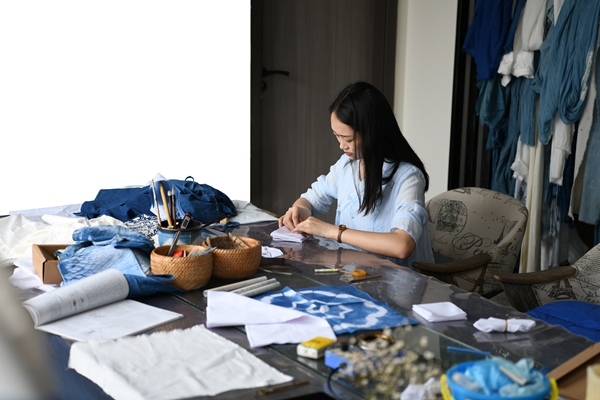Rural getaway


"About 80 percent of our guests are city dwellers. They often live busy lives and come here for relaxation during holidays," Liu says.
Guan has hired three other locals to help at the cafe.
With the development of the village, "we live a better life without having to go far from home", he says.
Over the years, more local people have joined the trend.
Lin Ying, a Gaohuai resident, says her family was poor and her mother-in-law is sick. Lin and her husband tried various jobs like growing and selling vegetables, raising fish and rabbits and working at factories. After four years, they improved their condition and came out of poverty.
In 2017, Lin decided to reconstruct her own house into a three-floor teahouse for customers to enjoy tea, pick vegetables and fruit in the garden and enjoy home-cooked meals.
"My house is close to hills and a river, so visitors can enjoy the beautiful natural views. This is the advantage of our restaurant," says Lin.
Now, she can earn nearly 10,000 yuan per month.
According to He, the trend can benefit villagers. "They can earn money by renting their houses and land to those who want to start businesses or find jobs in cultural companies. And these businesses produce little pollution, so villagers welcome them."
More than 300 people are engaged in cultural businesses in Gaohuai.
"Gaohuai has become a good example of rural revitalization. It can receive about 500,000 visitors a year, generating up to 20 million yuan," says He.
In 2017, the village was honored as one of the "beautiful and habitable villages in China" by the Ministry of Housing and Urban-Rural Development.
- Shanghai International Film Festival organizes outdoor screenings
- New commission set up to protect TCM intangible cultural heritage
- China launches virtual library to promote mutual understanding
- Thai version of 'Love We Can Win' released in Bangkok
- China Cultural Center reopens exhibition center in Seoul

































